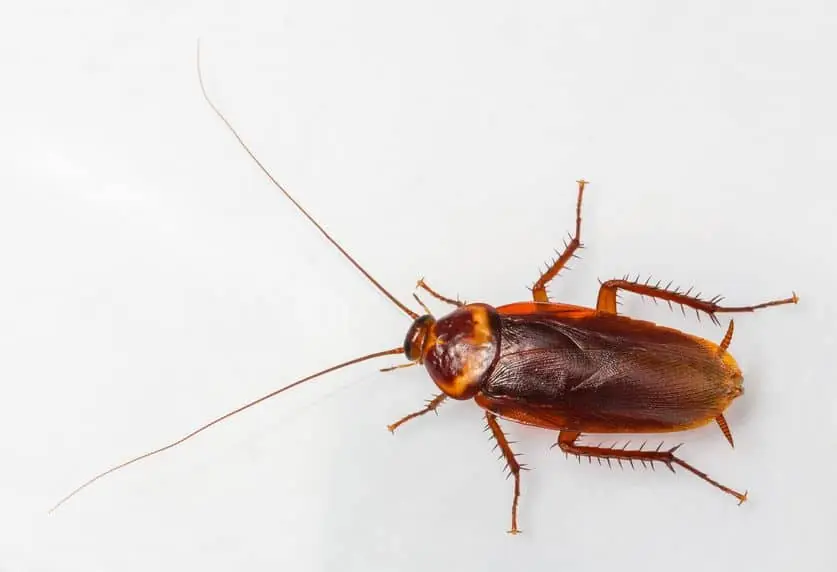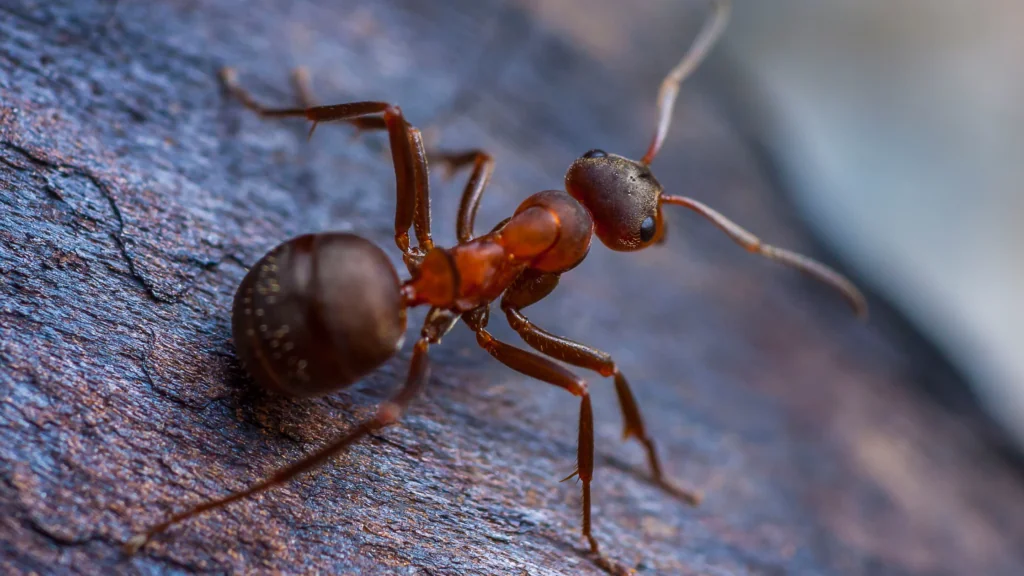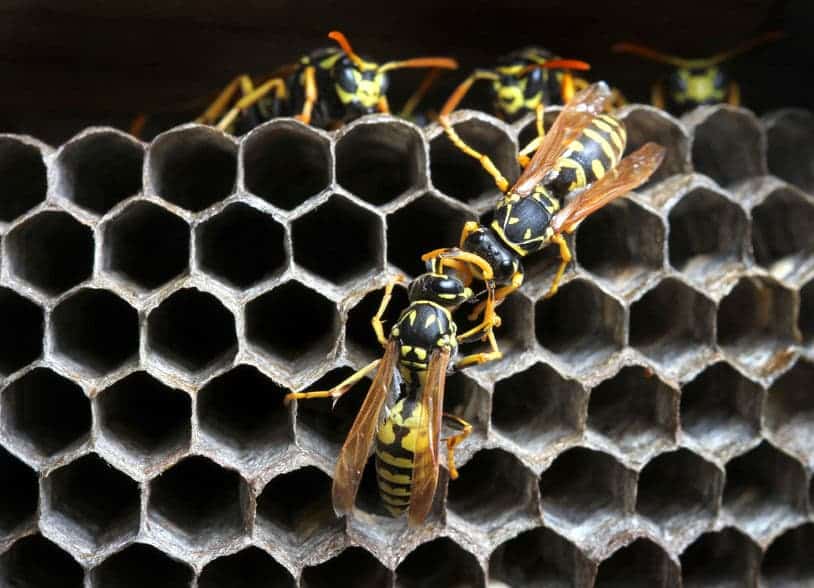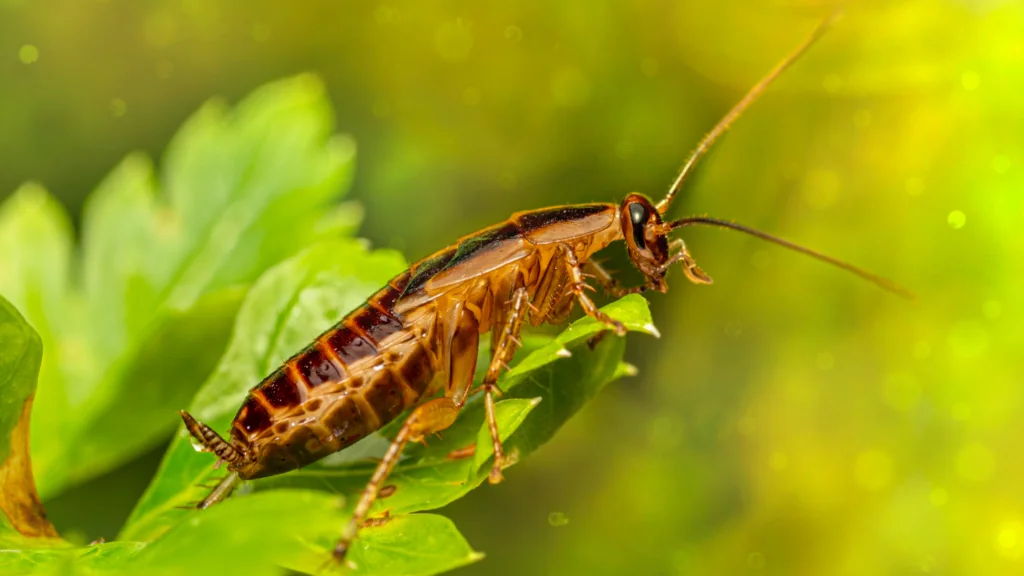
There are several species of roaches that have come to be called “palmetto bugs,” but the American cockroach is usually the species to which this term refers. Whatever you choose to call them, Floridians are all too familiar with these pests.
While these huge, winged creatures are certainly not desirable to have around, the good news is that palmetto bugs don’t sting or bite like so many of our Florida pests, and a good pest control plan for your Jacksonville home or business can keep their numbers down. If you already suspect palmetto presence, contact us for a free home inspection or call us at 800-225-5305.
Get Rid of Roaches in Your Home Today
Identifying Palmetto Bugs
The American cockroach is a large winged creature, dark brown in hue with a cream-colored anterior segment by its first pair of legs. The cream hue is interspersed with darker markings. You may first encounter this bug when it flies up towards lights or in damp spots, such as in basements, woodpiles, and mulch.
Smokybrown cockroaches also live in Florida and they’re called “palmetto bugs” by many people. They’re a bit smaller than the American cockroach and are dark mahogany in hue. They also have wings.
True palmetto bugs are similar in appearance (thus, the confusion). If you spot bugs that look like what we’ve described; move slowly; and have an awful smell when distrurbed, that may be a genuine palmetto bug. No matter the actual species, though, it’s natural not to want them in your home.
History of the Palmetto Bug
According to “The Fascinating History of the Palmetto Bug” by John Keasler in The Miami News, this creature probably originated in Iran (back when the country was still called Persia). Perhaps they would have stayed there had it not been for their high intelligence and ability to learn circus tricks. Seriously!
A man named John R. Palmetto recognized that these bugs could be taught to march in formation and perform acrobatic tricks. So, he created the Amazing Palmetto Bug Circus, which became quite popular. P.T. Barnum tried to buy these trained critters, but Palmetto wouldn’t sell. Instead, he took them on a national tour. When a train wreck occurred in South Florida, the circus bugs escaped and they found that they appreciated the Florida climate—and so they settled in and stayed.
According to another article, “The Meek Won’t Inherit the Earth” by Joe Workman, the bug was named by a real estate salesman who chose that moniker because the critters love living in palmetto bushes. No matter which story you believe, these bugs are part of our everyday life in Florida.
Palmetto Bugs in Jacksonville
Palmetto bugs love warm climates, especially those along the coast. They are, unfortunately, an inescapable part of Jacksonville living because we have the perfect weather conditions for bugs like these. If you’re in Northeast Florida, you’re probably not too far away from at least one of these roaches.
When they get inside a home, they tend to head to humid areas, including kitchens and bathrooms, attics and basements. They’ll hide under sinks and refrigerators and behind dishwashers, as three examples. When outdoors, they’re attracted to trash containers, trees, leaf litter, mulch, and septic tanks.
Problems Caused
Whether you’ve got a palmetto or a cockroach in your home, they can pose similar health risks. They spread salmonella, which can contaminate food supplies in your home, along with other harmful diseases. As they shed body parts and leave behind urine and feces, this can trigger allergic reactions in some people as well as asthma attacks.
Because it can be difficult to tell the difference between cockroaches and true palmetto bugs, you’ll also have to consider the diseases that roaches can spread, including the Entamoeba histolytica and the poliomyelitis virus. Although roaches don’t bite, the spines on their legs can scratch someone on contact.
Katsaridaphobia
Besides health-related problems, plenty of people have a phobia of cockroaches, which would naturally extend to palmetto bugs. In fact, a noted entomologist believes that more people fear this insect than any other kind. Plus, this fear goes way back with Ancient Egyptians creating spells to ask Khnum (the ram-headed god) to make roaches disappear.
In Ancient Rome, Pliny the Elder called them “disgusting” and John Smith in Jamestown complained about a critter he called the “cacarooch” with “ill-scented dung.” Even experts don’t know why so many of us have a strong repulsion to cockroaches, since they don’t bite and aren’t poisonous, but the reality is that this is a common phobia—making it even more important to keep them out of Florida houses.
Deterring Palmetto Bugs Around Your Home
There are two basic things palmetto bugs are searching for when they find their way into your home (and it is not to terrorize you or scare you to death). They are looking for water and warmth.
One easy way to reduce the chances of these bugs coming in is to keep your home dry and make sure you take care of leaky, drippy pipes. Also seal off holes and gaps in walls and doorways so there is no easy access from the outside. Keep your home clean and do not leave food out — human food and pet food alike can attract roaches of all kinds if they wander in. Wash dirty dishes promptly, not letting them stay in the sink overnight, and keep food scraps in airtight containers. Take your trash out regularly and put the garbage in tightly sealed containers outdoors.
Choose one specific place in your home to eat, such as a kitchen table, and stick to that location. This limits the number of places where these bugs can find food.
As cockroaches have gotten familiar with living in people’s homes, their diet has expanded. In the tropics, they ate only vegetation, but now they’ll scavenge on a wide variety of food types. They favor starch and sweets, as well as meat, and will also gnaw on cheese, baked goods, and more. In other words, they’re quite adaptable and savvy when it comes to survival so, to keep them out of your home, people have to be, too.
To help keep roaches out, you can also plant certain plants and flowers around your home that insects don’t like, making sure you avoid using mulch too close to your house, and keeping hedges, shrubs, and plants trimmed back so you don’t give the bugs a place to live right near your home.
Reproduction
As with other pests, once you have some in your home, they’ll focus on eating and reproducing. If you were to see a female palmetto when she was ready to mate, you’d watch her put her wings into the air and release pheromones to attract males to her. If you were to see a male, pre-mating, he’d be flapping his wings.
Once a female mates for the first time, she’ll stay fertile for the rest of her life. After mating, it will only take a couple of days before she lays eggs and uses her saliva to place them in a damp spot that will likely be safe. For the rest of her life (fifteen to twenty more weeks), she’ll continue to lay more eggs in sets of about fifteen.
After about fifty days, an egg hatches into a nymph with a nymph taking six to twelve months to become an adult. These rapid reproductive cycles mean that a small number of palmetto bugs can quickly turn into a much larger presence—exactly what you wouldn’t want in your Jacksonville home.
How to Kill These Pests
Seeing a palmetto bug can be enough to send some people into a panic attack. If they keep coming into your home despite your efforts to keep them at bay, you can easily sweep or vacuum them up and throw them out if you see one scurrying along the wall or baseboard. You can also put out bait traps, but make very sure you put them where children and pets cannot get to them.
Boric acid dust and tobacco juice may work against palmetto bugs, but must be applied carefully as they are also dangerous to humans and pets. Never use any toxins in areas where children or pets may find it. A safer alternative is to use a mix of vinegar and water — it may help kill the bugs but is safe for people and animals.
When to Call The Pest Control Professionals
If you frequently see palmetto bugs, it’s very likely that there are many, many more that you don’t see. To keep these abundant roaches under control, Turner Pest Control offers several flexible and affordable pest control plans. We treat entry points inside and protect your home outside.
When you contact us, you can count on the best people—trained professional technicians who arrive on time and treat each customer with respect—and the latest, safest, and most environmentally friendly products available today. Plus, we go beyond promising that you’ll be satisfied.
For fast results and long-term protection, contact us online today or call 800-225-5305.



